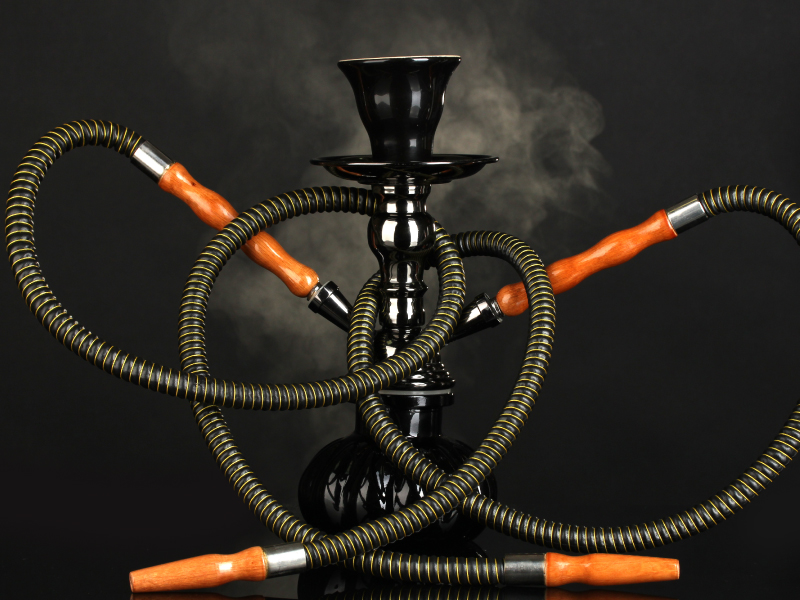Hookah smoke increases blood clot risk in mice
By American Heart Association News

Tobacco smoke from hookahs may cause blood clots, which can lead to heart attack or stroke, according to new research conducted in mice.
Hookah, also called "waterpipe smoking," is a method of smoking tobacco that is often perceived as less harmful than cigarettes. It consists of a head that holds the tobacco, a body, a chamber filled with water, a hose and a mouthpiece. Blocks of compressed coal are used to "burn" the tobacco.
"Hookah smoking, which is becoming more popular in Western countries, carries a toxic profile that is thought to be comparable or to even exceed that of traditional cigarettes," the study's senior author Fadi Khasawneh said in a news release. Khasawneh is associate professor and chair of pharmaceutical sciences at the University of Texas at El Paso. "Some studies have found that the smoke emitted from one hookah tobacco smoking episode contains significantly more harmful chemicals compared to a single cigarette."
In the study, published Thursday in the journal Arteriosclerosis, Thrombosis, and Vascular Biology, researchers found tobacco smoke from a hookah caused blood clots to form within an average of about 11 seconds, compared to an average of five minutes without exposure to hookah smoke.
Researchers exposed mice to hookah smoke, then compared platelet activity among the exposed mice to those that were unexposed.
"Our findings provide new evidence that hookah smoking is as unhealthy – if not more so – than traditional cigarettes," Khasawneh said. "Smoking a hookah, cigarettes, e-cigarettes or other forms of tobacco all increase your risk for heart disease and stroke."
The dangers of hookah smoke have been highlighted before. Last year, the American Heart Association published a scientific statement warning hookah smoke contains significant levels of toxic chemicals like carbon monoxide and particulates from tobacco that can harm blood vessels, the heart and lungs.
From 2011 to 2015, the number of U.S. stores that sell hookah products has more than doubled, and interest has grown among both teens and adults, according to Aruni Bhatnagar, chair of the scientific statement writing group and chief of the University of Louisville's environmental medicine division.
"This study provides additional evidence that, contrary to popular belief, hookah smoking adversely affects cardiovascular health," Bhatnagar said in a news release. "Although the tobacco industry has found novel ways to popularize and increase the use of new products, studies like this highlight the high risk of hookah smoking."
If you have questions or comments about this story, please email [email protected].





